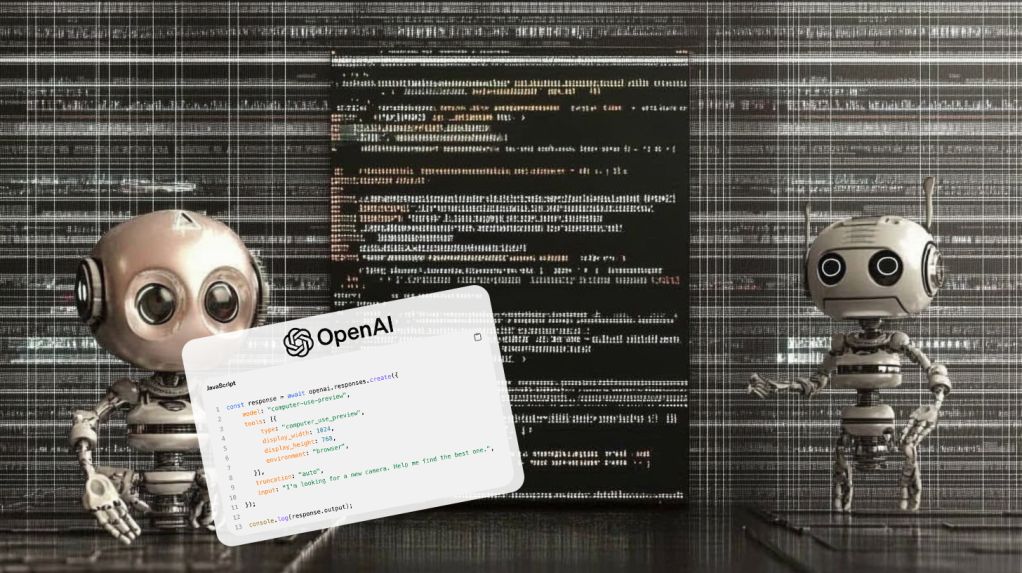Transformative Shift in Enterprise AI: The Impact of the Agents SDK

OpenAI’s New Agent-Building Platform: A Game Changer for Enterprises
OpenAI has made headlines with the launch of its new agent-building platform, which combines an upgraded Responses API, essential built-in tools, and an open-source Agents SDK. This release marks a significant development in the field of enterprise artificial intelligence (AI), streamlining previously complicated processes into a unified framework.
A Comprehensive Solution for AI Development
The announcement has far-reaching implications for AI teams in enterprises. No longer will businesses need to piece together separate frameworks or manage intricate setups. OpenAI’s platform brings together vital features, making it easier for teams to create reliable AI agents. Here are the key components included in the new platform:
- Responses API: Enhancements allow for smoother integration and improved interface design for agent development.
- Built-in Tools: These capabilities simplify tasks such as web searches and file management, essential for effective agent performance.
- Open-source Agents SDK: This toolkit enables developers to coordinate both single-agent and multi-agent workflows seamlessly.
The unification of these features addresses the issues of fragmentation that have affected enterprise AI development. By using OpenAI’s framework, companies can avoid the challenges of unreliable agents and complex prompt engineering, making the development process far more efficient.
Strategic Shifts in OpenAI’s Approach
OpenAI’s latest release indicates a strategic shift in its approach to AI agent development. Historically, the company has led the way with foundational models; now, it’s taking steps to reinforce its position in the agent ecosystem.
1. Encouraging External Innovation
OpenAI’s acknowledgment that it cannot solely rely on its internal resources to innovate is significant. The new open-source SDK allows for collaborative improvements from the developer community. The recent emergence of Manus, a Chinese startup with impressive autonomous capabilities, illustrates the benefits of community-driven innovations, which OpenAI aims to harness.
2. Standardizing APIs for Enterprises
OpenAI’s API has increasingly set the standard for large language model (LLM) interfaces. By enhancing its API while making it extensible, OpenAI is likely to create a strong network effect within the enterprise AI space. This allows organizations to easily integrate various models into their operations while maintaining OpenAI’s central role.
3. Expanding the Retrieval-Augmented Generation (RAG) Pipeline
The introduction of built-in tools for file searching positions OpenAI as a competitor to existing database services. Now, enterprises can manage their data retrieval needs using a single API, potentially simplifying vendor relationships and improving operational efficiency. This shift could create challenges for established database vendors, as enterprises may choose OpenAI’s solution for its streamlined capabilities.
Assessing the Impact on Enterprises
For businesses contemplating the adoption of OpenAI’s technologies, several factors warrant careful consideration:
1. The Reliability Factor
Reliability is a crucial concern in deploying AI agents. OpenAI recognizes that some of its tools have limitations. For instance, its browser-based AI achieved a decent success rate but struggled with operating system tasks. However, with enhanced monitoring tools, enterprises can now deploy AI agents more confidently.
2. Vendor Lock-In Concerns
While embracing OpenAI’s platform offers distinct advantages, it raises questions about vendor lock-in. Though the Responses API may create dependencies on OpenAI, the compatibility of the Agents SDK with other models provides some level of flexibility for enterprises.
3. Competitive Edge through Integration
The all-encompassing nature of OpenAI’s offering, including the API, SDK, and supporting tools, positions it favorably against competitors like Anthropic and Google, who have taken less cohesive approaches. This comprehensive approach could be a key advantage as enterprises increasingly seek integrated solutions for their AI needs.
Changing Dynamics in the Agent Landscape
The launch of OpenAI’s agents SDK significantly reshapes the competitive landscape for companies focused on AI agent development. Existing players like LangChain and CrewAI may find themselves competing against OpenAI’s established reputation and resources. Furthermore, OpenAI’s monetization strategies offer a competitive pricing structure that could attract developers towards its platform.
As the tools and SDK are still being evaluated, their full potential remains to be seen. Nonetheless, early reports indicate that the latest offerings are built on previous feedback, suggesting a thoughtful and strategic evolution rather than a hasty rollout.
OpenAI’s shift towards providing a comprehensive solution for AI agents illustrates its determination to lead in a rapidly evolving field. By positioning itself as a central player in AI development, OpenAI is not just looking to support enterprises but also to shape the future of how AI solutions are built and deployed.






